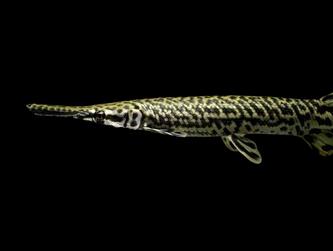
The next director of the Minnesota Aquatic Invasive Species Research Center (MAISRC) at the University of Minnesota will be Nicholas Phelps, a researcher who’s been with the center since it was founded in 2012. He’ll replace Susan Galatowitsch, who returns to her position as professor, researcher, and head of the Department of Fisheries, Wildlife, and Conservation Biology.
“I’m delighted that Nick will be stepping into this role,” Galatowitsch said. “He has great energy and enthusiasm for the work that needs to be done to find solutions to AIS problems in Minnesota. And he understands the critical role of our stakeholders, particularly our lakeshore association and public agency partners.”
Phelps has several research projects underway that address a range of issues including Asian carp biocontrol, threats to game fish by harmful viruses, invasiveness of starry stonewort, and predicting zebra mussel spread using boater movement and other risk factors. He joined the University in 2007 to research the invasive pathogen Viral Hemorrhagic Septicemia (VHS) virus, for which he developed a model that identified susceptibility of Minnesota lakes. His work resulted in a Minnesota statute change to better balance risk and cost of the state’s surveillance program.
Phelps has also worked closely with baitfish producers and retailers to reduce the risk of AIS spread in the industry, and in 2014, he characterized an invasive microsporidian parasite infecting fish in the Great Lakes region, which he later named Heterosporis sutherlandae. He is currently investigating two recently detected novel fish viruses for use as a possible biocontrol for Asian carp.
To ensure continuity with research and funders, there will be a year-long transition during which Galatowitsch and Phelps will serve as co-directors. Galatowitsch will continue to oversee projects and grants that are already underway and Phelps will oversee new projects and grants and will also lead the center’s outreach efforts and execution of its strategic plan.
The MAISRC director position, which is a 50% appointment, will continue to report to Brian Buhr, Dean of the College of Food, Agricultural, and Natural Resources Sciences. His research position will be in the Department of Fisheries, Wildlife, and Conservation Biology and will report to Galatowitsch.
Buhr said he appreciates Galatowitsch’s able leadership and the hard work of the center's staff and advisory board over the last two years. The team implemented a systematic research needs assessment process to prioritize research investments with input from stakeholders, created a new full-time, tenure-track research and outreach position, launched several new collaborations, and created a 10-year strategic plan.
“We are grateful for all that Sue has accomplished — and all while she had at least one other demanding full-time position,” Buhr said. “We’re looking forward to a smooth transition with Nick — thanks to the groundwork Sue and her team have put in place."
Phelps will begin as co-director on July 1.
- Categories:
- Agriculture and Environment





